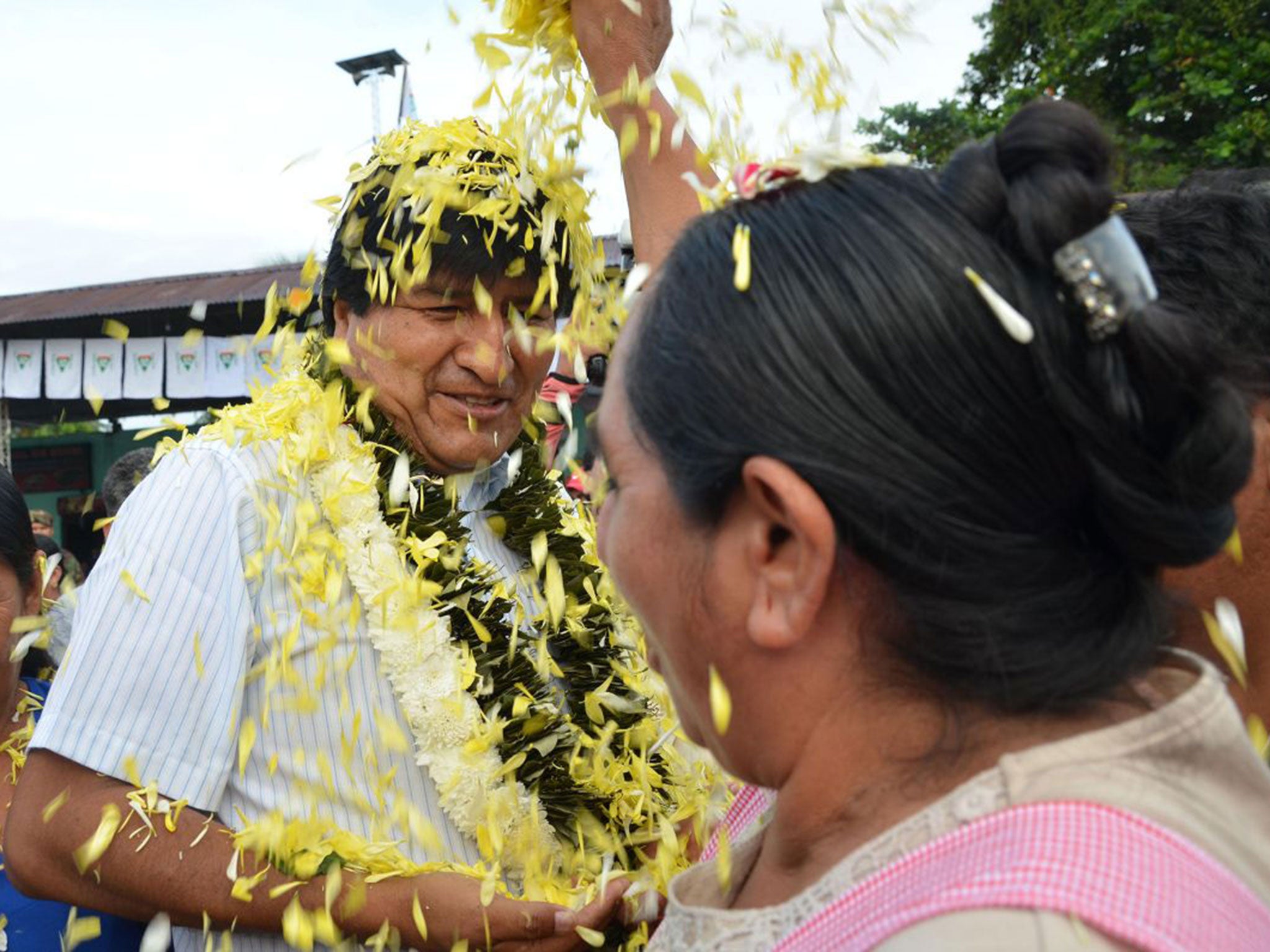Bolivia referendum: End of line for socialist leader Evo Morales who 'loses bid for fourth term'
Evo Morales fought for Bolivia's dispossessed - but early results suggest he will not be granted a change to the constitution and fourth term

Your support helps us to tell the story
From reproductive rights to climate change to Big Tech, The Independent is on the ground when the story is developing. Whether it's investigating the financials of Elon Musk's pro-Trump PAC or producing our latest documentary, 'The A Word', which shines a light on the American women fighting for reproductive rights, we know how important it is to parse out the facts from the messaging.
At such a critical moment in US history, we need reporters on the ground. Your donation allows us to keep sending journalists to speak to both sides of the story.
The Independent is trusted by Americans across the entire political spectrum. And unlike many other quality news outlets, we choose not to lock Americans out of our reporting and analysis with paywalls. We believe quality journalism should be available to everyone, paid for by those who can afford it.
Your support makes all the difference.He built airports, highways and the pride of La Paz – an aerial tram system. He also put a satellite into space.
But on Monday night, a national eagerness for new blood and thinning patience with government corruption was set to make Bolivian President Evo Morales’ current term in office his last. Partial results and unofficial “quick counts” yesterday indicated that his bid to extend his presidency by amending the constitution appeared set to end in defeat.
Mr Morales has governed for a decade. A “Yes” vote in Sunday’s referendum would have let Bolivia’s first indigenous President seek a fourth term in 2019.
Mr Morales said in a televised news conference that he was not giving up hope – calling celebrations by opponents premature – and had faith in the slower-reporting countryside. “They don’t like us much in the city, but the first results give me hope,” he said.
International observers did not report any serious irregularities and vote counting was slow, but not unusually, as paper ballots are manually counted. With 40 per cent of polling stations reporting at midday, the “No” vote stood at 62 per cent. Vote reporting is traditionally slow from rural areas, where Mr Morales is most popular.
Mr Morales said that whatever happens, he will respect the voters’ will. “I won’t get desperate,” he added.
The referendum’s timing could not have been worse for Mr Morales. He was stung this month by an influence-peddling scandal involving a former lover and by a deadly incident of political violence. He has presided over an unprecedented economic boom as prices for raw materials soared just as he took office. He is credited with spreading Bolivia’s natural resource wealth and empowering its indigenous majority.
But the boom is over. Bolivia’s revenues from gas and minerals, making up three-quarters of its exports, were down 32 per cent last year. Economists say Mr Morales leaned heavily on extractive industries to pay for programmes and failed to diversify the economy.
The referendum follows a political bombshell: a former lover of Mr Morales was named sales manager of a Chinese company in 2013 that has obtained nearly $500m in mostly no-bid state contracts. Mr Morales, a bachelor, denied any impropriety but his claim to have last seen the woman in 2007 was questioned when a picture emerged of them together last year.
Adding to Mr Morales’ woes, six city workers died of smoke inhalation last week in El Alto, the teeming city adjacent to La Paz, in an attack blamed on pro-Morales agitators. The attackers torched documents that allegedly incriminated the previous mayor in payroll corruption.
Eusebio Condori, a retired teacher, said he voted “No” because the scandal and the deaths “confirm that this government doesn’t have a plan for Bolivia, only for itself”.
A mother of three, Maria Espinoza, voted “No” because she believes in term limits. She echoed the complaint of others that too many jobs depend on political patronage.
Bolivia’s constitution permits presidents and vice presidents to serve two consecutive terms. Mr Morales’ first term was deemed by a high court not to have counted.
AP
Join our commenting forum
Join thought-provoking conversations, follow other Independent readers and see their replies
Comments